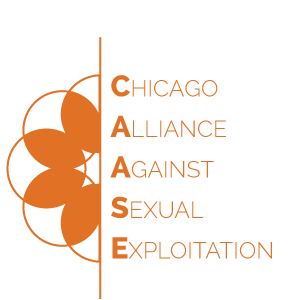New Restorative Justice Bill Is a Win For Survivors
June 18, 2021
UPDATE: SB 64 was signed into law on July 15, 2021
It’s been encouraging to see so many of our 2021 legislative priorities pass through the Illinois chambers with bipartisan support this year. Among them was Senate Bill 64. It will protect the proceedings of restorative justice practices from being used in court, shielding perpetrators from self-incrimination. This change will encourage participation in restorative justice practices, making it a more viable option for survivors.
SB 64 and Survivors
For many survivors, going to the police isn’t an option. We know Chicago law enforcement has a long record of failing survivors and harming marginalized communities through systematic abuse. Reporting can be retraumatizing and keep the survivor from truly healing.
Once police are involved, the survivor has little control over the criminal legal process. Many survivors avoid law enforcement to protect their kids, prevent their partner’s arrest, or prevent their entrapment by police—a risk that feels too high among undocumented folks. Restorative justice allows the person who was victimized to define and seek accountability from their perpetrator. It also allows the perpetrator to take responsibility for the harm they caused and return to their community without getting caught up in the criminal legal system.
Restorative justice can offer new paths toward healing—but the person who caused harm must be willing to participate. That’s why lowering this barrier for perpetrators actually centers survivors.
Quick History of SB 64
The bill got its start in the faith community. According to Patrick Keenan-Devlin, executive director of the Moran Center and one of SB 64’s authors, Cardinal Blase Cupich called upon the Catholic Lawyers Guild of Chicago to strengthen the work of Father David Kelly from the Precious Blood Ministry of Reconciliation (PBMR). They facilitate several restorative initiatives, including healing circles for mothers and young men in the community. PBMR also supports people who’ve been released from prison. For members of the legal community, amplifying Father Kelly’s mission meant bringing restorative justice practices to the courts.
The concept slowly gained steam, and Illinois began using restorative justice courts in 2017—but there was a hitch: Many public defenders discouraged their clients from participating because they feared that it could damage their cases.
“I remember thinking to myself, ‘Why would I allow my client to participate in this? It’s way too risky,’’ Keenan-Devlin said in a phone interview with CAASE. That disconnect between defense and restoration left room for a new policy. It took teamwork to create the bill before it hit the floor of the Illinois chamber in 2020. While Keenan-Devlin initially drafted SB 64 with Judge Stuart Katz and Moran Center Fellow Andrew Sowle, it saw numerous edits and additions from organizations like the Juvenile Justice Initiative (JJI).
“The language of the bill is quite clear, and a good deal of its language resembles what happens during mediation in civil cases,” says Betsy Clarke, JJI’s executive director.
She believes CAASE’s involvement in the advocacy for the bill made a huge difference in its chances for passing. It demonstrated how both criminal legal system advocates and survivor advocates value these practices. Because we know that the criminal legal system rarely heals or resolves disputes for survivors, CAASE has long been a proponent of restorative methods and hopes to see them used more widely as we work to end sexual harm. SB 64 is a part of that shift.
Now that the bill has been sent to the Governor, you join us in advocating for SB 64. Call J.B. Pritzker’s office and ask that he sign it into law. You can reach the Springfield office at 217-782-6830.
While we’re awaiting the Governor’s signature, we’d like to celebrate our partners in lobbying. We thank the Juvenile Justice Initiative, the Catholic Lawyers Guild, the Moran Center, the Circuit Court of Cook County, and others for the energy and care they put into SB 64.
This piece was authored by KT Hawbaker and edited by Hayley Forrestal of CAASE. Learn more about our staff here. Thanks to Patrick Keenan-Devlin and Betsy Clarke for speaking with us about their work.
You can learn more about this new law in Restorative Justice Won’t Work Without This Crucial Piece by
Madison Pauley for Mother Jones.



